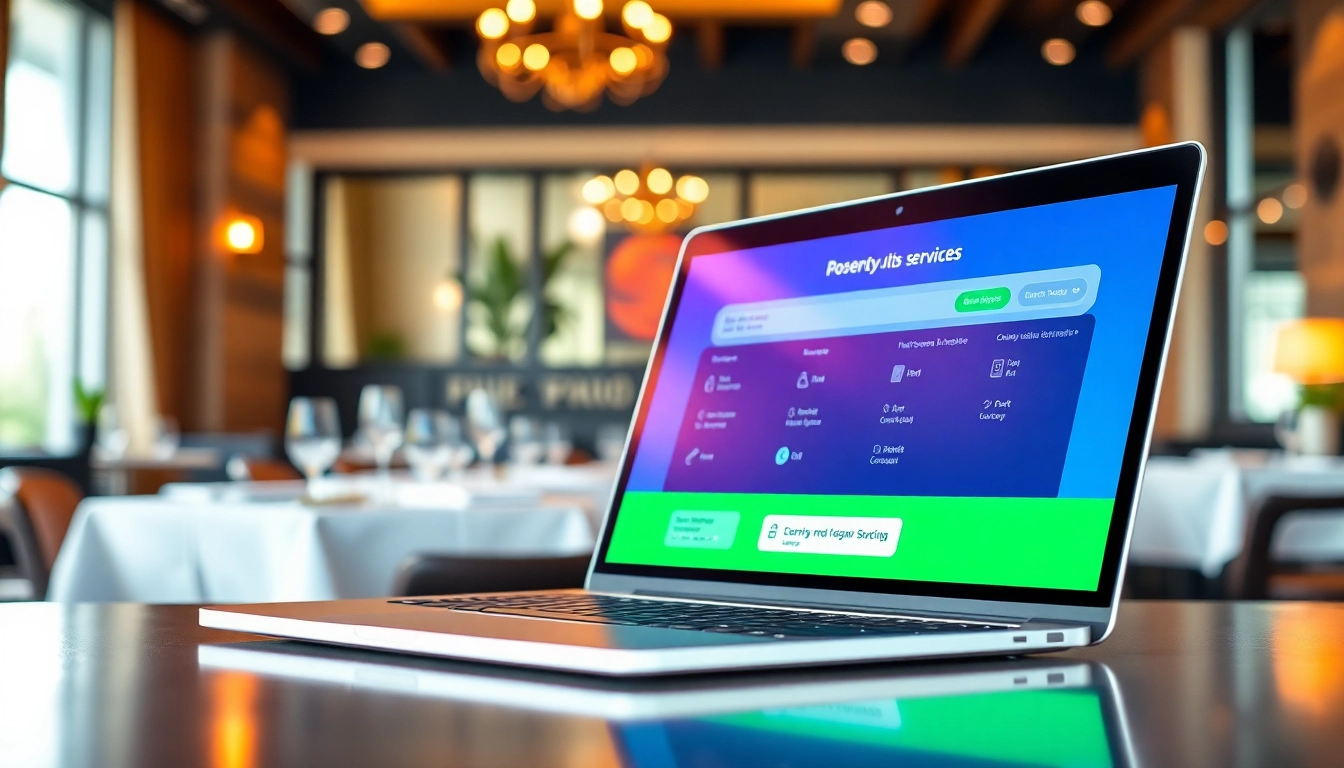Understanding Reservation Services in the Modern Dining Landscape
In an increasingly fast-paced world, the ability to secure a table at a restaurant with just a few taps on a smartphone represents a significant convenience for diners. This convenience is largely thanks to Reservation Services, which have become an integral part of the dining experience. Understanding how these services function and their broader implications can significantly benefit both restaurant owners and patrons alike.
What Are Reservation Services?
Reservation services refer to systems and platforms that allow customers to book tables at restaurants in advance. These services can be accessed through various channels, including websites, mobile applications, and even social media platforms. The aim is to streamline the booking process, reduce wait times, and enable restaurants to manage their capacity effectively. Reservation systems have evolved to incorporate various features, such as real-time availability, automated confirmations, and integration with customer relationship management (CRM) tools.
The Importance of Reservations for Restaurants
For restaurants, reservations serve several critical functions:
- Optimized Turnover: By managing bookings in advance, restaurants can optimize table turnover and maximize revenue during peak hours.
- Enhanced Planning: Knowing the number of guests expected can assist in staffing decisions and inventory management, important factors in providing excellent service.
- Data-Driven Insights: Reservation systems collect valuable customer data, enabling restaurants to analyze trends, preferences, and peak times, fostering informed decision-making.
How Reservation Systems Work
Modern reservation systems function on a mix of technology and user-friendly interfaces. When a guest wants to make a reservation, they typically enter their desired time, number of guests, and any special requests in the platform:
- Availability Check: The system checks available slots, allowing users to pick from free tables.
- Confirmation: Once the reservation is made, the system sends a confirmation via email or text, providing guests with peace of mind about their booking.
- Reminders: Automated reminders are sent to guests, reducing the likelihood of no-shows and enhancing overall operational efficiency.
Benefits of Implementing Reservation Services
Implementing a reservation service offers numerous advantages for restaurants:
Improving Customer Satisfaction
In today’s digital experience age, consumers expect seamless interactions. Reservation services enhance customer satisfaction by:
- Reducing Frustration: Guests can avoid long wait times and guaranteed tables improve the dining experience.
- Personalization: Reservation data allows restaurants to tailor experiences according to individual preferences, leading to a more memorable visit.
- Feedback Mechanism: Many systems include options for guests to leave reviews, providing valuable feedback that can prompt quality improvement.
Streamlining Operations for Restaurants
Reservations help streamline restaurant operations by:
- Effective Table Management: Managers can better control inventory and employee allocation based on expected guest numbers.
- Automated Systems: Many processes—such as confirmation messages and feedback requests—can be automated, reducing administrative burdens on staff.
- Data Utilization: Restaurants can utilize data from reservation systems for strategic planning, improving marketing efforts and customer outreach.
Boosting Revenue through Effective Management
The financial benefits of utilizing reservation services can be substantial:
- Increased Bookings: With a strong online presence and effective reservation system, restaurants can draw in a larger number of guests.
- Dynamic Pricing Strategies: By analyzing booking data, restaurants can implement time-based pricing strategies, charging different rates based on demand.
- Upselling Opportunities: Knowing specific reservations can open doors for targeted promotions, encouraging guests to spend more during their dining experience.
Key Features of Effective Reservation Services
For a reservation service to be effective, it should encompass key features that enhance user experience and operational efficiency:
User-Friendly Interface Design
A reservation system’s interface plays a significant role in its effectiveness. A user-friendly design ensures:
- Intuitive Navigation: Users should be able to navigate effortlessly through the booking process without encountering confusion.
- Mobile Responsiveness: As many users book tables from their smartphones, a responsive design is critical.
- Visual Appeal: A visually appealing interface fosters trust and encourages users to complete their reservations.
Integration with Other Business Tools
Reservation systems that integrate seamlessly with other business tools can significantly enhance utility:
- POS Integration: By integrating with Point of Sale systems, restaurants can correlate table bookings with actual sales, maximizing analysis.
- CRM Systems: Customer data can be synchronized with CRM tools for targeted marketing campaigns and loyalty programs.
- Analytics Tools: Analytics integration provides insights into customer behavior and allows for enhanced personalization and marketing strategies.
Mobile Accessibility for Guests
As mobile technology evolves, offering guests mobile accessibility can drive significant increases in reservations:
- App-Based Reservations: Allowing guests to book through an app enhances convenience and encourages repeat usage.
- Push Notifications: Restaurants can communicate promotions and updates directly with guests, fostering engagement.
- Easy Modifications: Offering the ability to easily modify or cancel reservations through mobile platforms adds to overall customer satisfaction.
Best Practices for Managing Reservation Services
To maximize the benefits of reservation services, restaurants should adhere to best management practices:
How to Choose the Right System for Your Business
Selecting the appropriate reservation system requires careful analysis of a restaurant’s specific needs:
- Assess Feature Sets: Identify essential features that align with the business model, such as integration with existing systems or loyalty program functionalities.
- Evaluate Cost: Costs associated with the system should align with the expected ROI, particularly considering anticipated increases in bookings.
- Read Reviews: Investigate customer testimonials and case studies to gauge satisfaction levels and operational success with potential solutions.
Training Staff to Use Booking Systems Effectively
Staff training is crucial to ensure the operational value of the reservation system is fully realized:
- Hands-On Training: Facilitate hands-on workshops to familiarize staff with the features and functionalities of the chosen system.
- Role-Playing Scenarios: Utilize role-play to prepare staff for scenarios such as handling customer inquiries and managing bookings during peak times.
- Feedback Mechanisms: Encourage staff to express any issues encountered while using the system so they can be addressed promptly.
Measuring Performance and Customer Feedback
Regularly measuring performance and gathering customer feedback can help restaurants enhance their reservation services:
- Key Performance Indicators (KPIs): Track relevant KPIs, such as booking conversion rate, no-shows, and customer satisfaction scores.
- Surveys and Polls: Distributing surveys after dining experiences can provide insights into areas of improvement.
- Continuous Improvement: Utilize data from performance metrics and customer feedback to continuously refine the reservation process.
Future Trends in Reservation Services
The landscape of reservation services is continually evolving. Keeping abreast of future trends can significantly benefit early adopters:
Artificial Intelligence and Machine Learning Applications
Artificial intelligence (AI) and machine learning (ML) are beginning to play a pivotal role in reservation services:
- Predictive Analytics: AI can analyze booking patterns and predict customer preferences, helping restaurants personalize marketing efforts.
- Chatbot Integration: AI-powered chatbots can handle reservations, answer customer inquiries, and provide real-time assistance, enhancing customer experience.
Personalization in Guest Experiences
Personalization is becoming increasingly vital in enhancing guest experiences:
- Custom Offers: Reservation systems can leverage customer data to offer tailored promotions based on past visits and preferences.
- Special Occasion Recognition: Enhanced systems can note special occasions (birthdays, anniversaries) and prompt staff to provide celebratory touches during visits.
Expansions into New Markets and Trends
As globalization influences the dining landscape, reservation services are expanding into new markets:
- International Options: More restaurants are adopting global reservation platforms to attract an international clientele, accommodating diverse cultural expectations.
- Innovative Formats: Formats such as pop-up dining experiences and food trucks that require booking are becoming more prevalent, demonstrating the adaptability of reservation services.



